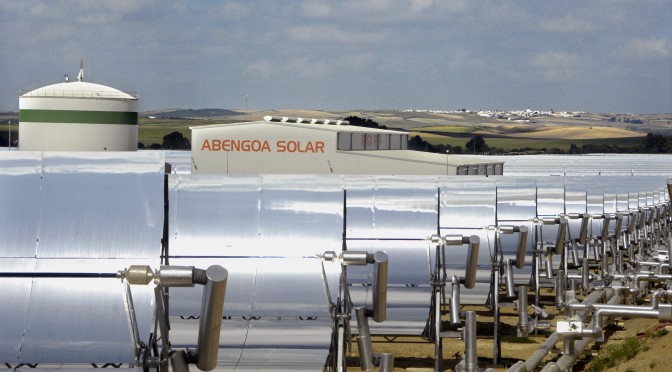The future of concentrating solar power in the GCC region, according to the report, is as bright as sunshine.
A recently published research report “GCC Renewable Energy Sector Analysis” by KuicK Research has suggested that solar energy will dominate the upcoming renewable energy development in the GCC region.
The GCC region is largest producer of oil and gas in the world but because of increasing pressure on the natural fossil fuel resources due to the growing population and economy, it has started focusing on diversifying its power generation sources and will be including renewable sources of energy in their energy basket. Saudi Arabia, UAE, Kuwait and Oman have all targeted 10% of power production from renewable sources of energy by 2020 and are rapidly moving towards realizing their targets.
The topography of this region gives it immense solar energy potential throughout the year. For about 80% of the year the skies are clear in this cloudless rainless region giving it uninterrupted sunlight. The GCC region lies in the highest band of insolation in the world and forms a major part of the huge 18 TWe of the total worldwide solar radiation, thanks to its expansive desert like topography and climate. Solar insolation received by the region encourages the use of solar photovoltaics and concentrating solar power, the two most popular technologies for solar power generation in the world.
As per “GCC Renewable Energy Sector Analysis” report findings, the GCC region receives the highest daily solar radiation in the world. In the summer months of April to August the sunlight is the highest for the maximum number of hours which peaks around in the months of June or July. For about 8 months in a year the region enjoys good amount of sunlight, March through October, better than most of the world. Kuwait has the highest amount of solar radiation at about 8,000 W hr/m2 followed by UAE and the Saudi Arabia.
Solar holds the key to renewable energy development in the GCC region as it is the single most abundant renewable source of energy available there. Power produced from solar energy is efficient and cheaper as compared to other renewable sources of energy. The research report investigates the solar power potential of the region and individual countries. Huge investments and research studies are happening in efforts to tap the solar energy in the region as part of the renewable energy development. Almost 85 to 90% of the money being spent on renewable energy development is being put in solar energy. The “GCC Renewable Energy Sector Analysis” research report documents all the initiatives being taken in the individual countries to help boost their power production from solar energy. The research report from KuicK research vitalizes solar energy as a means to the targeted power production from renewable energy. The future of solar power in the GCC region, according to the report, is as bright as sunshine.
1. Why GCC is Focusing on Renewable Energy?
2. GCC Renewable Energy Resource Mapping
2.1 Solar
2.2 Wind
2.3 Waste to Energy
2.4 Biogas
3. Saudi Arabia
3.1 Overview
3.2 Renewable Energy Initiatives & Generation Capacity Target
3.3 Regulatory & Policy Framework
4. United Arab Emirates
4.1 Overview
4.2 Renewable Energy Initiatives & Generation Capacity Target
4.3 Regulatory & Policy Framework
5. Bahrain
5.1 Overview
5.2 Renewable Energy Initiatives & Generation Capacity Target
5.3 Regulatory & Policy Framework
6. Kuwait
6.1 Overview
6.2 Renewable Energy Initiatives & Generation Capacity Target
6.3 Regulatory & Policy Framework
7. Oman
7.1 Overview
7.2 Renewable Energy Initiatives & Generation Capacity Target
7.3 Regulatory & Policy Framework
8. Qatar
8.1 Overview
8.2 Renewable Energy Initiatives & Generation Capacity Target
8.3 Regulatory & Policy Framework
9. GCC Electricity Grid
10. Emerging Trends
10.1 Demand for Smart Grid Solutions
10.2 Increasing Investments
10.3 Need for Incentive & Tariff Structure
10.4 Rising Electricity Consumption
| Contact Information |
| KuicK Research Himanshu Chawla 91-011-47067990 Contact www.kuickresearch.com |


